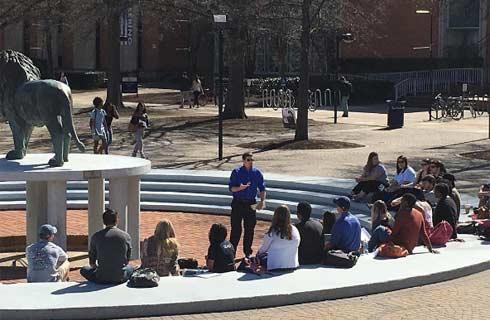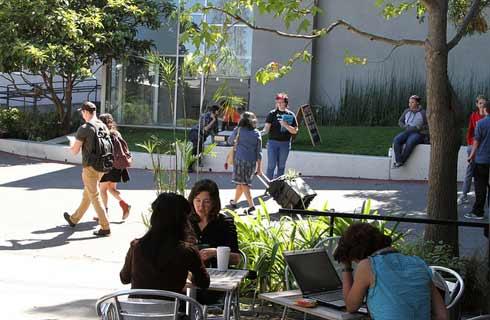国际学生入学条件
Students are accepted from a range of undergraduate majors from the natural sciences, physical sciences, mathematics and humanities. Backgrounds of our students are correspondingly varied: some enter the program directly following their undergraduate degree, others with a Masters degree or other post-undergraduate experience in research, consulting, the Peace Corps, Teach for America, etc
TOEFL iBT - 77 (Writing 20; Listening 15; Reading 20; Speaking 22)
IELTS - 7.0 or higher
three recommendations
Note: GRE test scores are no longer required for application to this program
Statement of Purpose
Please submit a combined Academic and Personal Statement of Purpose that outlines your reasons for pursuing graduate research and explains your academic interests and your broader background, experiences, and skills that can lead to a successful graduate school experience. This Statement of Purpose should provide the admissions committee with a sense of you as a whole person, and provide insight into your potential to contribute positively to a diverse and inclusive community.
We request that you use headings for the following four sections for the Statement of Purpose:
(1) Personal background, experience, and motivation (400-word limit): Introduce yourself, what are your personal motivations to come to graduate school, your short and long-term professional goals, and how did you get here? Please describe how your background and experiences influenced your decision to pursue a graduate degree.
(2) Academic background and preparation (400 words): Describe your academic training, skills, research experience, and accomplishments relevant to your future graduate work. You may also provide the context around any perceived gaps or weaknesses in your academic record.
(3) Future research (400 words): What research questions would you like to explore as a graduate student? This is in no way binding - it is only intended to give us an indication of where your research interests and approaches are headed. If you have written a proposal for future research (e.g., NSF predoctoral fellowship), those ideas should be included here.
4) Importance of community, diversity, and inclusion (400 words): We strive to build a diverse and inclusive community that strengthens our intellectual and collaborative department. Please provide insight into your potential to contribute to a community of inclusion, belonging, and respect where scholars representing diverse backgrounds, perspectives, abilities, and experiences can learn and work productively and positively together.
展开
IDP—雅思考试联合主办方

雅思考试总分
7.0
- 雅思总分:7
- 托福网考总分:77
- 托福笔试总分:160
- 其他语言考试:NA
CRICOS代码:
申请截止日期: 请与IDP联系 以获取详细信息。
课程简介
Community ecology and population biology are particular areas of strength, covering the nature of species interactions, the composition of species assemblages over space and time, evolutionary ecology (including trait-mediated interactions), and population dynamics. We integrate well to other conceptual areas including behavioral ecology, climate change, ecosystem ecology, evolutionary genetics, and phylogenetics.<br><br>One area that has captured the attention of several labs is how rapid evolutionary change can shape population and community dynamics. Our vibrant group frequently hosts graduate seminars and recent topics have included eco-evolutionary feedbacks, biodiversity-ecosystem function, community ecology and phylogenetics, and specialism and generalism in ecology. Community ecology and population biology interfaces with Organismal Biology, which concentrates on the ecology and life-history evolution of single species. Applied research in community ecology and population biology includes work on conservation biology, invasions, biodiversity, disease dynamics, and agroecology in systems that range from the coral reefs to local corn fields.
展开







 预科
预科 奖学金
奖学金 实习机会
实习机会 在校学习
在校学习 跨境学习
跨境学习 校园授课-线上开始
校园授课-线上开始 在线/远程学习
在线/远程学习














 劳伦森大学
劳伦森大学

 特伦特大学
特伦特大学

 曼尼托巴大学
曼尼托巴大学

 麦吉尔大学继续教育学院
麦吉尔大学继续教育学院

 卡尔加里大学
卡尔加里大学

 阿尔伯塔大学
阿尔伯塔大学









 美国
美国